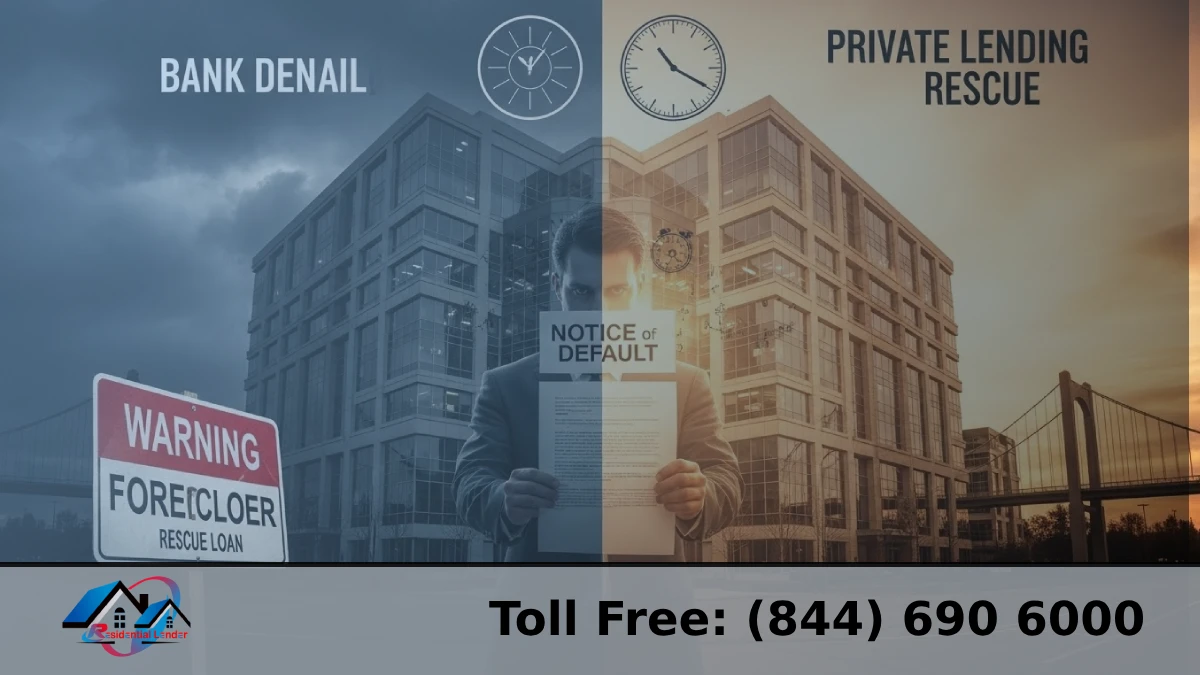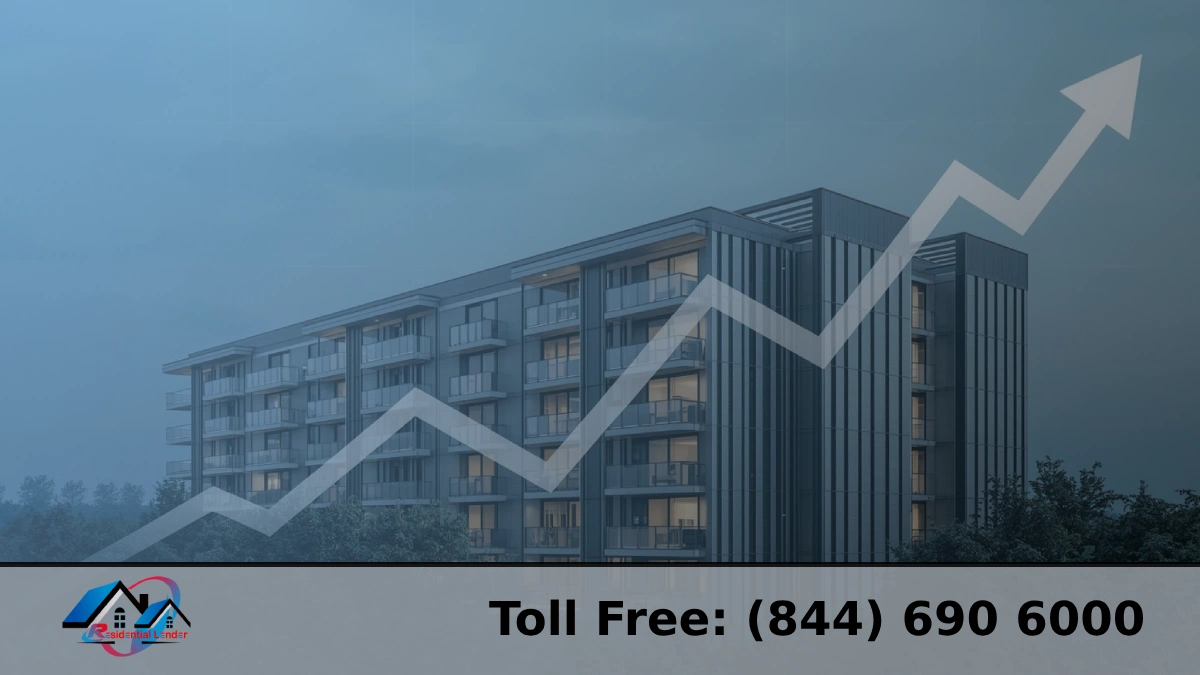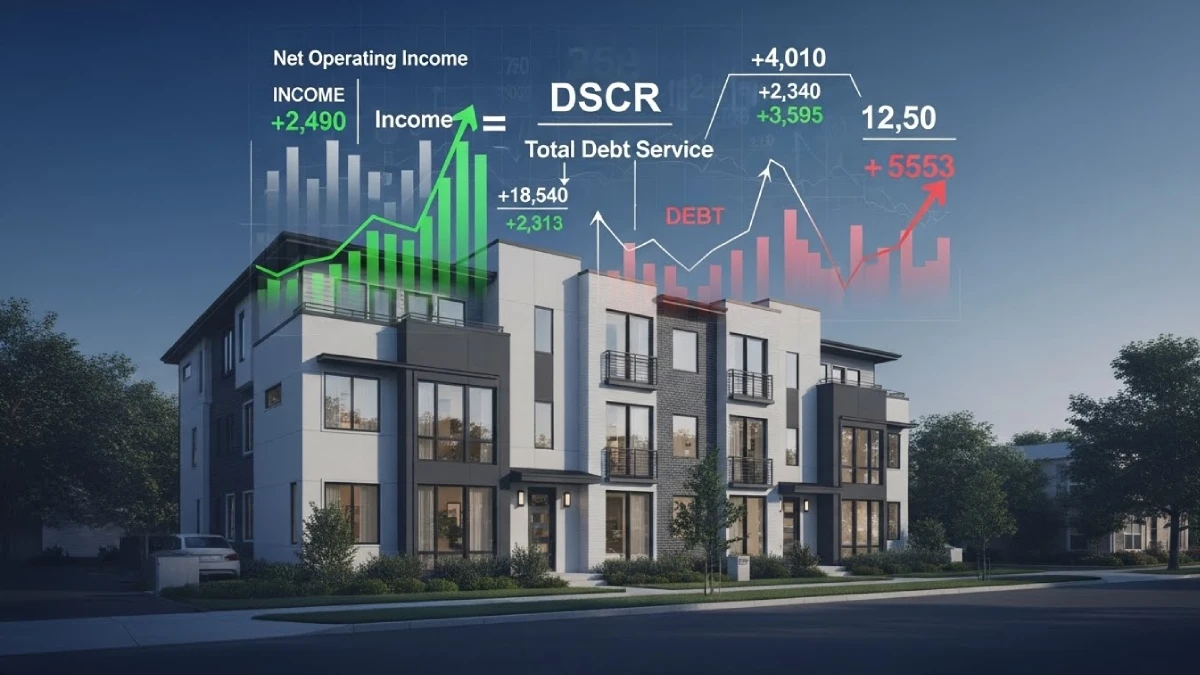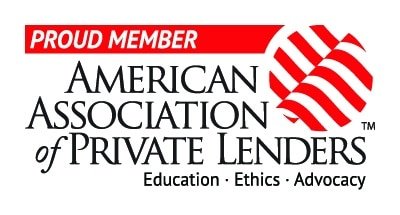Now that the groundbreaking is over and the plans have been approved, your new business idea is beginning to take shape. Think of a busy shopping area, a cutting-edge office block, or a cutting-edge industrial complex. All of these are interesting ideas. But after the original thrill wears off, a common question comes up: How are you going to pay for such a big project?
Some people say that getting the proper “commercial construction funding” is like figuring out a tricky maze. Many business owners struggle to decide on a course of action because there are numerous loan options, varying terms, and complex eligibility criteria. People are hesitant to make poor financial decisions when they have extensive knowledge about a project. This means that even the most hopeful projects can fail.
This is where the “Residential Lender” comes in. We are your reliable partner in making the process of getting funds for construction a business easier. We can help you because we have been committed to underwriting for 30 years and have a strong network of over 200 private lenders and investors. Not only do we help you secure funding for your commercial construction project, but we also provide personalized financial advice that makes things easier for you and empowers you to make informed, wise choices.
You can start your search for funding by reading this blog post. It talks about the different types of “commercial construction loans,” their benefits, and how to find the best financing option for your needs. Learn how loans work and how to apply for one. This way, you can be sure that you’ll get the “commercial construction loan” that makes your idea come true.
What is Commercial Construction Funding?
“Commercial construction funding” is used to build new “commercial properties” or fix up old ones and add on to them. It can be used for various types of projects, such as shopping stores, office buildings, and apartment buildings with multiple units.
Compare “commercial construction financing” and mortgages side by side. In other words, it’s more challenging to understand, more expensive, and carries different risks. Loans are typically disbursed in stages that are tied to key construction milestones. This means that we need to examine the project’s viability more closely, the developer’s expertise, and the market’s needs. This isn’t the same as paying off a house in one lump sum.
Loan companies, such as banks and credit unions, that provide funding for projects are part of the cash flow. Underwriters, private equity firms, and individuals who assess risk, viability, and loan terms are among those who participate in the market. These individuals collaborate to ensure the project’s success. The underwriters’ extensive knowledge is crucial to this complex process.
The Psychology of the Commercial Real Estate Investor: What Drives Your Decisions?
As a “commercial real estate investor,” you have to do more than just compare interest rates to make a decision. We understand that every business choice is based on essential factors, like the desire to be in charge of one’s finances, the fear of taking significant risks with considerable amounts of money, and the need to fully understand all “loan terms.” When you worry about hidden prices or sudden problems, it can stop you in your tracks. Securing funding on time is also crucial for keeping projects moving forward and capitalizing on market opportunities.
What makes these smart people do what they do? It’s a deliberate attempt to make a substantial amount of money. There is considerable interest due to the promise of a good return on investment (ROI), which means significant gains from projects that truly succeed. This is often matched with the need for a steady cash flow, ensuring that the property will have a consistent income stream once it is operational. Investors are most interested in asset growth, which means that their real estate holdings increase in value over time. Real estate is typically stable and predictable, which is why people who want to diversify their portfolios often prefer it. It’s a good way to balance out riskier assets.
As a private lender that has been reviewing loans for 30 years, we have a unique perspective on how investors think. Many people have asked us for loans, and we’ve also spoken to tens of thousands of individuals, so we understand the hopes and fears associated with significant real estate purchases. Because we know you so well, we can anticipate your needs, address your concerns before they become problems, and devise financial solutions that will help you achieve your long-term goals.
You can trust and rely on a funding partner more if they do this. We understand that it can be challenging for you to access the funds you need. Construction permanent value is also something we agree with you on.
Exploring Your Commercial Construction Funding Options: A Detailed Look
Every commercial project requires a unique approach to managing finances, just as each project has its specific objectives. To get the best funding for your project, you need to know about the different types of “commercial construction loans” that are out there. Here, we’ll discuss the various options and demonstrate how they can be beneficial in different scenarios.
Traditional Commercial Construction Loan
There are a lot of “commercial real estate loans” choices for construction from the ground up. “Construction loans” usually have phased disbursements, which means that the money is released in “draws” as certain construction plan milestones are reached, such as finishing the foundation, framing, and roofing. This step-by-step plan lowers the lender’s risk. Interest rates are typically tied to the prime rate or LIBOR, but SOFR is now the primary benchmark used in the US. Loan terms usually last between 12 and 36 months. They work best for larger, well-planned “construction projects” being built by reputable companies with strong financial backing and a clear, workable plan for when to halt construction.
Bridge Loans
Bridge loans, as the name suggests, are short-term loans that are meant to “bridge” a cash gap. Most of the time, they are used to quickly buying an existing property before getting a longer-term loan or starting a construction project while waiting for a long-term loan. Their primary benefits are speed and adaptability, which make them a vital tool for situations where time is of the essence.
Hard Money Loans
When someone obtains a hard money loan, the lender is more concerned with the value of the land being used as collateral and the loan-to-cost ratio of the project rather than the borrower’s credit score. Most of the time, private lenders give these loans, which can be approved and funded much more quickly than traditional loans. Even though the interest rates are higher, they are ideal for deals that require a quick close, projects that lack standard financials, or those that need to close quickly.
DSCR Loans (Debt Service Coverage Ratio Loans)
DSCR loans represent a significant shift in the way loans are made. The property’s ability to generate sufficient revenue to cover its debt service (principal and interest payments) is the primary factor that determines approval, rather than the borrower’s personal income or tax returns. Because of this, they are great for “rental investment properties” and investors looking for “no-doc loans” or “lite-doc loans,” which make the application process easier by requiring less personal financial information.
SBA Loans (SBA 7(a) & 504)
Small businesses can obtain SBA loans due to their favorable terms, including lower down payments and longer repayment terms, which the U.S. Small Business Administration backs. SBA 7(a) and 504 loans are usually used for general commercial financing. Still, they can also be used for “commercial properties” and “construction projects” as long as the small business will occupy at least 51% of the property. Lenders are less likely to lose money due to this government support, which results in better terms for qualified borrowers.
FHA Commercial Property Investment Loans
The Federal Housing Administration (FHA) backs loans for certain “commercial property investment loans,” especially for “multifamily housing projects.” These loans are usually linked to home mortgages. These loans have longer terms and possibly lower, more stable interest rates, which makes them a good choice for developers who want to build more affordable homes or community-oriented projects.
Construction to Permanent Loans
“Construction-to-permanent loans” are a beneficial choice because they combine the short-term financing for the construction phase with the long-term permanent mortgage into a single loan with a single closing. This lowers closing costs and provides buyers with clear loan terms from the start, so they don’t have to refinance when the construction is finished and the home is ready to move into. This is a good option for people who want to switch from growth to stable “commercial mortgages easily.”
State Income Loans and Other Niche Options
In addition to these well-known types, “commercial construction funding” also encompasses “stated income loans” (which are less common now due to changes in the law, but variations still exist), as well as other options tailored to each specific situation. Some of these are mezzanine financing, joint venture partnerships, and specialized financing for certain asset classes (like self-storage or hotels). This gives you the freedom to meet the needs of investors and develop projects tailored to your specific requirements.
The Underwriting Edge: Why Our 30 Years of Expertise Matters for Your Commercial Construction Funding
The only people who can help you deal with challenging money issues and build strong loan relationships are mortgage lenders with 30 years of experience. They understand how lenders operate and what they are looking for, enabling them to make more informed decisions and match individuals seeking loans with the most suitable lenders.
As underwriters, they can examine complex deal structures, identify issues, and devise solutions that benefit both investors and borrowers. When you understand this, acquiring money becomes quicker and less risky. Their method for evaluating risk ensures their safety by conducting extensive studies on potential providers and verifying their financial stability, reliability, and market competitiveness.
This careful review reduces the likelihood of problems arising after approval, which helps prevent delays and losses. You need to build trust with clients and lenders before you can give a clear and straightforward answer to commercial construction funding.
Tapping into Opportunity: Our Network for Commercial Construction Funding
Residence Lender is one of the biggest companies that lend money for commercial construction projects. It has a network of more than 200 private lenders and investors. There are many places they can get cash, and each has its own loan requirements and level of risk tolerance. They have more options and better deals as a result.
There are programs for both exclusive and non-exclusive recommendations, which makes it easier for people to collaborate and get things done. They can offer solutions that are tailored to your specific construction project because they are part of a larger network.
Based on your project’s size, location, expected returns, and unique challenges, they can carefully match it with the capital source in their network that can best meet its needs. This increases your chances of getting approved and helps you secure financing that aligns with your project’s long-term goals and budget.
Essential Factors for Selecting the Right Commercial Construction Loan
Obtaining the right commercial construction loan is crucial for navigating the funding landscape and ensuring that the project’s goals are met.
What kind of loan you get will rely on the project’s scope and size, the type of property, and your investment plan (fix-and-flip, fix-and-hold, or fix-and-rent).
There are two key methods for measuring project financing: Loan-to-Cost (LTC) and Loan-to-Value (LTV). Lenders use these measures to determine the level of risk they are taking. If you want your project to generate revenue, you need to understand interest rates and loan terms. These factors have a significant impact on monthly payments, capital costs, and cash flow.
The job will not fall behind schedule as long as the drawing plan is clear, well-defined, and up-to-date.
Lenders pay close attention to how much the borrower knows, how stable their finances are, and how well they’ve done in the past with similar construction projects. This changes the loan terms, making it more likely that the client will be approved for a loan.
There should be a clear plan and a good Exit Strategy for repaying the loan or refinancing it when the job is completed.
Several factors can alter the terms and conditions of loans for commercial construction. Some of these changes include fluctuations in interest rates, market conditions, business operations, and shifts in supply and demand.
A complete feasibility study is needed for every construction project. This study examines the project’s viability, market demand, expected costs, and potential earnings. People also use it as an excuse to ask for cash.
Your Trusted Partner for Commercial Construction Funding Success
“Residential Lender” has been reviewing loans. It works with more than 200 private groups that give and invest money.
They allow you to choose and provide direct access to multiple cash sources, as they are both a table lender and a correspondent lender.
They provide advice on a wide range of financial issues and assist clients in obtaining the necessary funds to undertake various tasks, from reviewing projects to negotiating complex deals. They believe that every construction project is unique and requires a tailored approach.
They aim to make problems less mysterious, reduce risks, and expedite the cash-generating process, enabling clients to achieve their real estate commercial goals safely and effectively.
Secure Your Commercial Construction Funding Today
Commercial construction funding can be challenging, but understanding your loan options is crucial to making a project as successful as possible. It is designed to cater to the diverse needs of various project types, financial situations, and investor objectives. Each loan has its purpose.
As a domestic lender for 30 years, we can help you find the best way to access funds from our network of over 200 private investors and lenders. We want to make things easier for you, lower your risks, and give you personalized financial advice so you can confidently bring your idea to life.
Get in touch with Residential Lender for personalized financial advice, and let our 30 years of experience in underwriting help you plan your next construction project. Go to our website to take the next important step toward reaching your commercial real estate goals.
FAQs
How long do commercial construction loans typically take to close?
The timing of when commercial construction loans close can vary significantly depending on the project’s complexity, the lender, and the borrower’s promptness in providing all the required paperwork. It can be anywhere from 30 days to 4 months or more. Traditional bank loans or SBA loans may take longer to close because they go through more thorough screening processes. Hard money loans, on the other hand, can close faster, sometimes within a few weeks.
What is a typical loan-to-cost (LTC) for a construction project?
Typically, the loan-to-cost (LTC) ratio for a construction project ranges from 60% to 80%. This means that lenders will pay for 60% to 80% of the total project costs, including the purchase of land, construction, and “soft costs.” The user will then need to contribute the remaining 20% to 40% as equity. The exact percentage depends on the type of project, the borrower’s experience, and their assessment of the project’s risk.
Can I get commercial construction funding for a fix-and-flip property?
Yes, fix-and-flip properties can get commercial construction funds. This is especially true through private and hard money lenders. Most of the time, these loans are set up to cover both the purchase price and the costs associated with renovating the property. Payments are made based on reaching specific renovation goals. Most of the time, lenders in this area assess the project’s potential for profit and its “after-repair value” (ARV).
Are no-doc loans or lite-doc loans available for commercial properties?
Yes, you can get no-doc and lite-doc loans for commercial properties. Most of the time, private lenders offer these loans. These choices typically don’t require extensive personal financial documentation, such as tax records. Instead, they focus on the property’s ability to make money (like in DSCR loans) or the value of the collateral. Although they are quick and easy, the interest rates on these loans are typically higher than those on fully recorded loans.
What is the role of a draw schedule in construction-to-permanent loans?
The draw plan is essential for construction-to-permanent loans. It shows how the money will be released in stages as the construction project progresses and specific goals are met. Usually, an outside inspector checks that each step is completed before the next “draw” is issued. This method of controlled disbursement protects both the lender and the user by ensuring that the funds are used as planned and the project stays on track.
How do SBA loans differ from traditional commercial mortgages for a construction project?
SBA loans, such as the 504 program, differ from regular commercial mortgages for construction projects in that the government backs them. This means that the terms are better, with lower down payments (often 10-15%) and longer repayment terms (up to 25 years). They are usually made for owner-occupied homes where a small business will take a large part (51% for existing homes, 60% for new construction) of the finished commercial property. Traditional commercial mortgages typically require higher down payments and shorter terms. Still, they often offer larger loan amounts and faster closing times.
What kind of due diligence is involved in a loan request?
Significant research must be conducted before applying for a loan to finance commercial construction. The lender looks closely at many things, such as the borrower’s financial stability (credit history, balance sheets, and income statements), the project’s viability (market analysis, appraisals, environmental reports, permits, and zoning); the general contractor’s experience and finances; and all project plans, the budget, and the proposed draw schedule. This strict process helps everyone figure out the risk.








